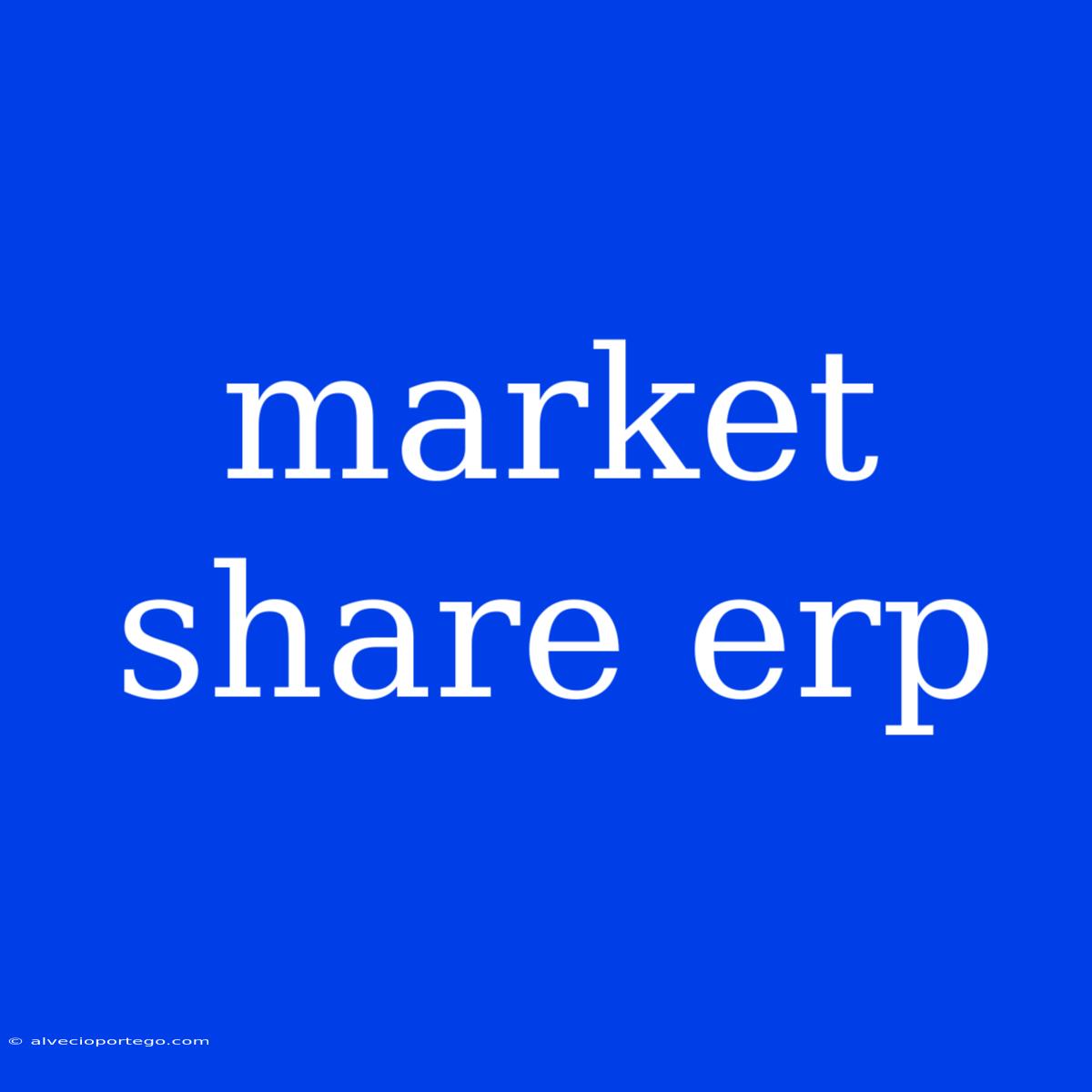The ERP Market Share Landscape: A Competitive Analysis
The Enterprise Resource Planning (ERP) market is a bustling arena, with numerous players vying for dominance. Understanding the market share landscape is crucial for businesses seeking the right ERP solution. This article provides a deep dive into the competitive landscape, highlighting key players and their market share, as well as emerging trends and factors influencing the market.
Dominant Players: A Look at the Top Contenders
1. Oracle: Oracle is a behemoth in the ERP space, consistently ranking among the top providers. Their Oracle Fusion Cloud Applications suite offers a comprehensive platform catering to diverse industries and business sizes. Their strong brand reputation and expansive reach solidify their position as a market leader.
2. SAP: Another dominant force, SAP boasts a vast customer base and a robust portfolio of solutions. Their SAP S/4HANA platform is widely adopted by businesses looking for a scalable and integrated ERP system. SAP's focus on innovation and industry-specific solutions keeps them at the forefront of the market.
3. Microsoft: Microsoft Dynamics 365 is a comprehensive suite of cloud-based applications, including ERP functionalities. They are known for user-friendly interfaces and strong integration with other Microsoft products. Their focus on small and medium-sized businesses (SMBs) has contributed significantly to their market share.
4. Infor: Infor specializes in industry-specific ERP solutions, catering to specific sectors like manufacturing, distribution, and retail. Their Infor CloudSuite platform leverages industry expertise and offers tailored solutions to address unique business challenges.
5. Epicor: Epicor provides industry-specific ERP solutions across various sectors, with a focus on manufacturing, distribution, and retail. Their Epicor Cloud platform offers a flexible and scalable solution, catering to businesses of varying sizes.
The Emerging Landscape: Trends Shaping the Market
1. Cloud-Based Solutions: Cloud ERP solutions are gaining momentum, offering flexibility, scalability, and cost-effectiveness compared to traditional on-premise systems. This shift has spurred innovation and competition among vendors, leading to a more dynamic market.
2. Industry-Specific Focus: As businesses seek tailored solutions, vendors are increasingly focusing on industry-specific ERP platforms. This allows them to offer specialized functionalities and address the unique challenges of different industries.
3. Artificial Intelligence (AI) and Machine Learning (ML): The integration of AI and ML into ERP systems is gaining traction, offering enhanced data analytics, predictive insights, and automation capabilities. This trend is transforming how businesses manage operations and make informed decisions.
4. Increased Focus on User Experience: Modern ERP solutions are emphasizing user-friendliness and intuitive interfaces. This is crucial for user adoption and ensuring seamless integration with existing workflows.
Considerations for Choosing an ERP System:
1. Business Needs: Carefully assess your business's specific requirements and challenges. Choose a system that can address your current needs and adapt to your future growth.
2. Scalability and Flexibility: Ensure the chosen ERP solution can scale with your business and offer the flexibility to adapt to changing needs.
3. Industry Focus: Consider industry-specific solutions that cater to the challenges and requirements of your industry.
4. User-Friendliness: Prioritize user-friendly interfaces and ease of navigation for seamless adoption across your organization.
5. Integration Capabilities: Ensure the chosen ERP system can integrate seamlessly with your existing software and systems.
6. Cost and ROI: Consider the total cost of ownership, including implementation costs, maintenance fees, and ongoing support.
7. Vendor Support: Evaluate the vendor's track record, reputation, and support services. Choose a vendor that provides reliable and responsive support to ensure a smooth implementation and ongoing operation.
The Future of ERP Market Share:
The ERP market is constantly evolving, driven by technological advancements, changing business needs, and the emergence of new players. Businesses need to stay informed about the latest trends and choose ERP solutions that align with their long-term strategic objectives. By carefully considering the factors mentioned above, businesses can select the right ERP system to drive efficiency, growth, and competitive advantage.

